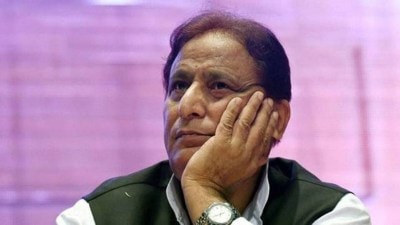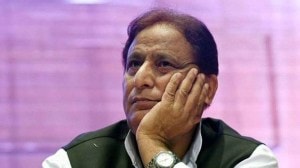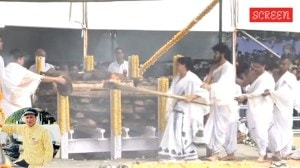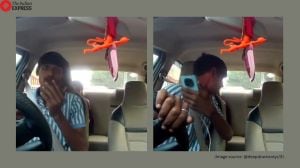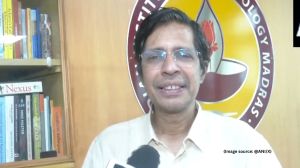In line of fire, J-K cops are less equal than others
WADURA (SOPORE), SEPTEMBER 3: Fatima Begum had been mourning the death of her sister for 15 days. When she returned wearily to Wadura on A...

WADURA (SOPORE), SEPTEMBER 3: Fatima Begum had been mourning the death of her sister for 15 days. When she returned wearily to Wadura on August 10, she saw several policemen with a coffin in her compound. Her youngest son, Naseer Ahmad, 19, was dead, killed by militants in a car bomb blast.
Naseer was the second of her sons to die on police duty. Her eldest, Bashir Ahmad Bhat (32) lost his life on February 4, 1997 in a militantambush at Sogam in Kupwara while his patrol was transporting cash from a bank. Now, she has only one son left, who is illiterate and drives a horse-cart for living.
“God gave me a garden full of buds, but now two of them have fallen from the bush,” Fatima said, weeping. “Naseer would still be here playing with the village boys if he had not been appointed in police on compassionate grounds after his elder brother’s death. He was our only support.”
For Fatima, having two sons on the police force was once both a guarantee of economic security and a source of pride. Joining the police was one of the few ways young men from the village could find a steady job. But now, she has begun to hate the very sight of a uniform.
“I don’t want Rasheed, my only surviving son, to wear this uniform. I don’t want to lose him,” she said. “Police is a thankless job. I had not seen my sons for months together after they joined police, and they did not show me Naseer’s face after he died. They said his body had completely been disfigured. I could not see them even after their death,” she said.
Bashir is survived by a widow and four children. His eldest son is now 15 years old. “There was no sahara (support) for the family after Bashir’s death. To keep the home fires stoked, Naseer had to join the police after he was recruited on compassionate grounds,” said Mohammad Jamal Bhat,his old, ailing father. “He was still a child. Nobody knew that he too will meet the same fate as his elder brother. His death broke our back.”
The family now lives on memories. Every morning, the Bhats visit the graveyard to sit silently next to the two graves, which do not yet have epitaphs. They cry and pray together and sometimes Jamal Bhat tenderly cuts the grass which has grown around the graves.
Bashir and Naseer are just two of the scores of policemen who got killed doing a thankless job in the Valley. More than 450 policemen including a superintendent of police, 13 deputy superintendents, 14 inspectors, 18 Sub Inspectors and 24 assistant sub inspectors were killed by militants. But despite being in the same line of the fire, the local policemen do not get the benefits the men of other security forces get in Kashmir, nor do they get the similar rewards in death. “If an Army jawan dies, he gets Rs 7.5 lakh as ex-gratia relief. A Border Security Force man gets Rs 5 lakh, but the Jammu and Kashmir policeman is given just Rs 2 lakh,” said Director General of Police Gurbachan Jagat. “Though the Government has promised to remove this disparity, it is still there,” he said.
In fact, the emergence of militancy has completely changed the characteristic of policing in Kashmir. While the Army and other security forces are trained and motivated to fight this proxy war, police are relegated to duties that have little to do with real policing.
“In place of fighting crime, we are either fighting militants directly or providing inputs and guiding the Army during anti-militancy operations. Otherwise, our men are busy in VIP protection, escort duties, road and bridge protection duties, or on the security of vital government installations,” a senior police officer said.
As the militancy becomes more professional and deadly, the local police are also becoming more important. “Being locals, the policemen know the terrain like the palms of their hand. They know the tactics of the militants and notonly understand the language but the silence during an operation,” said a senior Army officer. “It has become impossible to work without their help. They are our eyes and ears in the fight against militancy,” he said.
In fact, the Special Operations Group collaborates with the security forces in each and every operation now. Though marred by allegations of excesses, they can take credit for the killings of some of top militant commanders.
But for families like those of Bashir and Naseer, the khaki uniform has come to mean not a glorious sacrifice for the nation, but a little-noticed loss that will cast a sad shadow over their lives forever.
— (To be continued)
Photos



- 01
- 02
- 03
- 04
- 05


